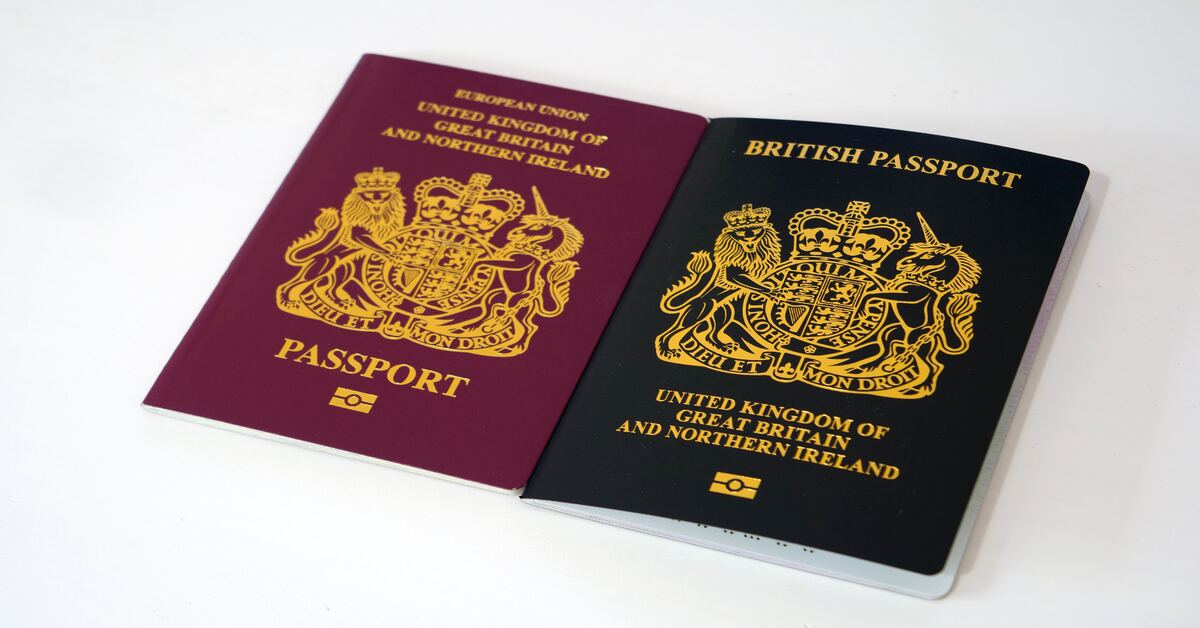The United Kingdom has long been an attractive destination for individuals seeking new opportunities, whether for work, education, or to build a life in a diverse and culturally rich country. For those who have made the UK their home and wish to establish a long-term presence, obtaining British citizenship is a significant milestone. Citizenship grants individuals the right to live and work in the UK without any immigration restrictions, offering a sense of stability and security.
There are 3 main stages to being granted British citizenship.
- Live and Work in the UK for 5 years on a work visa
- Apply for Indefinite Leave to Remain (ILR)
- Apply for Naturalisation/British citizenship
Work Visas
The first step to becoming a British citizen is being granted a work visa that contributes towards the 5 year requirement for ILR.
There are numerous visas that provide the minimum time requirement, below are the most popular.
Indefinite Leave to Remain
Indefinite Leave to Remain is a form of permanent residence that allows you to remain in the UK with no restrictions imposed like work visas do. You can work in any job on any salary, use the NHS for free and study with no limitations.
Eligibility
Generally, applicants must demonstrate that they have resided in the UK for a specific period without any significant breaks. The length of continuous residence required varies depending on the immigration route followed.
Most ILR applicants need to prove their knowledge of the English language and show an understanding of life in the UK. This is usually done through language tests and the Life in the UK test, which assesses applicants’ knowledge of British history, culture, and society.
Applicants must have a clean criminal record and be of good character. Any criminal convictions or serious misconduct may affect the outcome of the ILR application.
Some ILR routes require applicants to demonstrate financial stability, such as having a specific level of income or savings. This requirement ensures that individuals can support themselves and will not become a burden on the state.
Naturalisation
British naturalisation, also known as British citizenship, refers to the process by which a foreign national becomes a citizen of the United Kingdom. It is a legal process that grants individuals the same rights and privileges as those who are born British citizens.
Eligibility
To be eligible for British naturalisation, an individual typically needs to meet certain requirements.
The applicant must have lived in the UK for a specific period of time, usually at least 12 months under Indefinite Leave to Remain.
The applicant should be of good character, which involves having a clean criminal record and demonstrating respect for the law.
The applicant must meet specific language requirements to show they have an adequate knowledge of English, Welsh, or Scottish Gaelic.
The applicant may need to pass the Life in the UK Test, which assesses their knowledge of British society, history, and culture.
In some cases, individuals may need to meet certain financial thresholds, such as demonstrating their ability to support themselves without relying on public funds.
British Citizenship
Once these requirements are met, individuals can apply for British naturalisation. The application process involves completing the appropriate application form, providing supporting documents, and paying the required fees. The application is typically submitted to the Home Office, which is responsible for processing and deciding on naturalisation applications.
If the application is successful, the individual is granted British citizenship and receives a certificate of naturalisation. With British citizenship, individuals have the right to live, work, and study in the UK permanently. They can also apply for a British passport and enjoy the full rights and protections available to British citizens.
It’s important to note that the specific requirements and procedures for British naturalization may be subject to change, so it is always advisable to consult the official government sources or seek legal advice for the most up-to-date information.
Latest Articles
Homes for rent in the UK in 2024 can be a difficult process when you are new to the country. When you move to the UK for work, you are most likely to rent in the beginning. In 2023, net migration in to the UK was 672,000 with many newcomers moving to popular cities such […]
The Immigration Salary List (ISL) will replace the Shortage Occupation List (SOL) in the United Kingdom from the 4th of April 2024. The ISL contains 23 occupations that are most in demand in the UK for 2024, the list will be updated on an annual basis. There is some changes from the SOL including eligibility […]
If you are planning on moving to the United Kingdom for long term work or to complete a degree, then you will need a visa before you arrive. There are many UK visa types that allow you to work and study, some do not require any sponsorship. Each visa has different requirements in order for […]
The Shortage Occupation List UK 2024 is a list that highlights job roles that there are in demand across England, Scotland, Wales and Northern Ireland. The United Kingdom is currently looking internationally to help fill vacancies in various roles such scientists, engineers, IT professionals and the construction trades. The UK government announced in late 2023, […]
The Youth Mobility visa UK is a working holiday scheme that allows young people to work in the UK without job sponsorship. This visa is a popular one as it allows you to travel around the UK whilst gaining work experience for two years. You do not have to be sponsored by an employer, meet […]
Registered nurses are in high demand in the United Kingdom and are currently on the Shortage Occupations List. Nurses (2231) are needed in England, Scotland, Wales and Northern Ireland with the National Health Service (NHS) hiring from overseas to close the skills shortage gap. Once you are registered and can work as a UK nurse […]
The India Young Professionals Scheme was launched in early 2023. It became the best visa option for young Indians that want to live and work in the United Kingdom. The scheme is ideal as it allows young people to live and work for two years without job sponsorship. This allows time for you to find […]
The Skilled Worker Visa UK is the main pathway for skilled workers looking to move to the United Kingdom. The visa is the second most popular for long-term immigration and attracts expertise in different industries around the world. The visa has been designed to make it easier for people who are qualified in chosen occupations […]
Moving to another country is a big decision but can be a huge opportunity to improve your life. The United Kingdom is a popular choice for skilled workers with over 1.2 million skilled people moving here in 2023, this is more than Canada and Australia. Most people immigrate to the UK for the British culture, […]
The United Kingdom like many countries around the world, is going all out to attract skilled workers to help fill vacancies in many industries. The UK is looking to fill jobs of the future such as computer science and artificial intelligence, these industries amongst others are expected to increase over the next five years. With […]
London, Glasgow, Manchester, Liverpool, Birmingham and Leeds were voted 6 UK cities best in the world to live. They were named in the annual World’s Best Cities Report for 2024 by Resonance. London ranked the highest at number one, not only for the UK but the world. Scotland’s biggest city Glasgow came in at #61 […]
The United Kingdom offers multiple types of visa options including work visas, study visas and visitor visas. UK visa processing times will vary between visa types and this needs to be taken in to consideration when you begin your application. Planning your move such as gathering documentation, booking flights and finding accommodation are tasks that […]
The United Kingdom government has raised fees for certain visas from October following an announcement in July this year. Work visas and student visas have both risen with the amount varying depending on your personal circumstances and length of stay. UK Prime Minister Rishi Sunak announce that UK visa fees are increasing to partially fund […]
Care workers looking to move to the UK to live and work are currently in high demand. Out of all the UK sponsorship visas for care workers, the Health and Care Worker visa is the most popular pathway to live and work in the United Kingdom. You will need to have a valid visa and […]
The High Potential Individual visa was created in 2022 to attract recently graduated international students to the UK. It allows international graduates from selected universities to come and live and work in the UK for two years. You must have graduated in the last five years. Students must have graduated from a selected international university […]
Are you looking to study in the UK for a bachelors degree or maybe a masters or doctorate? The UK offers a world-class education which leads to great career opportunities and therefor sponsorship by employers looking to retain your expertise in the United Kingdom. A well-planned study strategy can lead to a long-term work visa […]
Interested in moving abroad to work as a nurse in the UK? The idea of continuing your career overseas can seem overwhelming at first. You will need to have a valid visa and sponsorship from an employer such as the National Health Service (NHS). Most nurses who qualify for a visa from outside the UK […]
Entrepreneurial talent are in demand around the world, with an increasing amount of countries offering start-up or innovation style visas to attract them. Entrepreneurs are important as they play a pivotal role in creating jobs, attracting investment and economic growth for the economy. The Organization for Economic Cooperation and Development (OECD) measure the attractiveness of […]
The Youth Mobility Scheme visa is a great opportunity to work and travel in the UK, it allows young people from Canada to live and explore around the country for up to three years. The UK recently negotiated a trade deal with the Canadian government which includes making it easier for young adults to live […]
Choosing to emigrate to the United Kingdom can be a life-changing but exciting decision. Not only does it have the worlds 6th largest economy, but is known for its diverse culture, sport and scenery. The UK more than ever is looking for skilled workers across the African continent to help fill skill shortages in sectors […]
The UK government has announced upcoming additions of multiple occupations to the Shortage Occupations List. These changes are expected to be introduced before the end of 2023 and will include occupations from the construction and fishing sectors. You will apply through the Skilled Worker visa. Separately, the Skilled Worker Occupations List contains more job roles […]
“Photo by Chris Boland” The Graduate Visa or Post-Study Work was created in 2021 to attract students to stay in the UK after they graduate. It allows foreign nationals to stay in the UK for at least 2 years to live and work once they graduate from a British university. The advantage of a Graduate […]
The Youth Mobility Scheme visa is a great opportunity to work and travel in the UK, it allows young people from Australia and New Zealand to live and explore around the country for up to three years. The UK recently negotiated a trade deal with the Australia and New Zealand governments which includes making it […]
The UK welcomed over 1.2 million new arrivals in the year ending March 2023, most of which on long-term immigration visas. Indian nationals made up the largest group in terms of Work visas and Study visas, both around 30%. The UK is home to one of the largest Indian diasporas in the world, over 1.8 […]
According to recent data from the Office for National Statistics (ONS), the country’s total population grew by 606,000 in the year ending March 2023. This means for the first time ever, an estimated 1.2 million people arrived in the UK for long-term immigration. 164,000 more people arrived in 2022 than in 2021, mainly due to […]
You may be required to submit proof that you have a minimum standard of the English language when you apply for a UK work visa. This requirement will depend on which type of visa you have applied for, whether you will be working or studying, and how long you plan to stay in the UK. […]
Health professionals are in high demand in the UK and even has its own visa, the Health and Care Worker visa. The UK government has set a target for 50,000 more nurses by 2024 in England alone, one of the ways to do this is to attract international talent. The National Health Service (NHS) is […]
The UK attracts thousands of international students each year, thanks to its world-class universities and work opportunities. Keep reading to discover some of the top reasons to consider moving to the UK to study. New data from Higher Education Statistics Agency (HESA) shows the UK now has a international student population of 679,970 as of […]
The United Kingdom’s newest visa will launch on Tuesday 28th February 2023, the long-awaited India Professionals Scheme. This visa will be the easiest way for young Indians to live and work in the UK, for up to two years. This visa is a good way to settle in the UK before applying for longer term […]
On February 2023, the Office for National Statistics (ONS) released its latest monthly report on employment in the UK. The report shows a near all time high of employment in the UK with increasing salaries. If you are interested in filling one of these vacancies and want to move to the UK, check out our […]
The United Kingdom has long been the world-famous place to work and live in due to the huge number of opportunities it offers in terms of career and life. Since it is among the top economies in the world, those looking for a high living standard with excellent employment opportunities find it the perfect spot. […]
When companies in England, Scotland, Wales and Northern Ireland are unable to find qualified workers living in the United Kingdom, they look worldwide to help fill those skill shortages. To be eligible for skilled work sponsorship in the United Kingdom, you need to qualify for a relevant job on a UK occupations list, after this […]
how much can you earn in the UK? The UK is a high-income economy, but how much do you need to earn for a comfortable life? When you think of moving to the UK, the first thing that comes to your mind is how much salary you will earn. From April 2023 the minimum hourly […]
How much does it cost to move to the UK? The amount of money to save when planning a move to the UK will vary from person to person, having your finances planned correctly is one of the most important aspects of moving to the UK. How much is a visa? Do I have to […]
How long will it take to process my UK Visa Appplication? The UK is a top destination for many talented people around the world, looking to work or study and build a new life. Skilled immigration benefits the UK economy whilst providing a better opportunity for individuals born abroad. The immigration system in the UK […]
Why study in the UK? The UK attracts thousands of international students each year, thanks to its world-class universities and work opportunities after graduation. In 2023, over 486,107 people chose the UK to further their higher education and increase their job chances. The most common nationality to arrive in the UK to study in 2023 […]
If you are looking to bring your family members to the UK, or you hope to join your family in the UK, then this article will explore your options. Several visas allow family members to join the main applicant in the UK, they are known as “dependants”. You don’t have to be a permanent resident […]
If you are thinking about applying for a working holiday visa in the UK, then you have found the right place. This visa is the easiest way for young people to live and work in the UK temporarily. The visa is formally knows as the Youth Mobility Visa and is available to citizens of participating […]
Birmingham Airport (BHX) Birmingham Airport serves more than 400 direct or one stop destinations globally with 50 airlines and was the UK’s seventh busiest airport in 2020 with the highest percentage of business travellers after London Heathrow. Just 10km from the centre of Birmingham the airport is connected by rail, road and bus, in 10 […]
The five major airports that service London are Heathrow, Gatwick, Stansted, Luton, and London City. They all differ in size, location, destinations they service and airlines they work with, and it’s important to know which one works best for you when deciding where to fly to. Many visitors to the UK may assume Heathrow is the best airport to fly […]








































